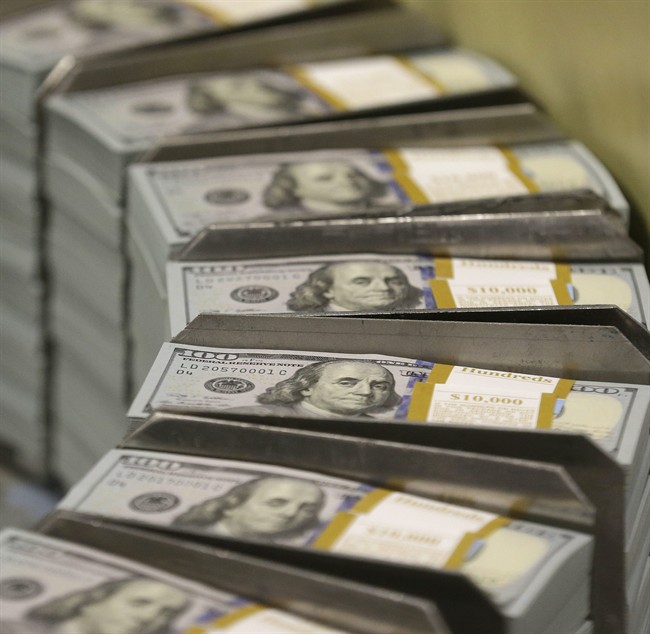Update: Jordan James Hirtle was referred to Nova Scotia’s restorative justice program and successfully completed the program’s requirements. As a result, the charges were withdrawn on March 14, 2019.

A 26-year-old man is facing charges in connection to counterfeit U.S. bills being circulated in the Halifax area.
On Tuesday, police say they conducted a traffic stop just after 11 a.m. in the 600 block of St. Margarets Bay Road. Police arrested the man without incident and held him in custody overnight.
READ MORE: Surge in counterfeit U.S. bills in Halifax prompts police warning
Jordan James Hirtle, 26, of Halifax has been charged with five counts of possession of counterfeit money and five counts of using counterfeit money in relation to the following cases released by police last Friday:
- On Feb. 24, five $20 U.S. counterfeit bills were retrieved from a Halifax pharmacy used to make a purchase the evening of Feb. 23.
- A financial institution in Dartmouth made a report to police on March 8 that it had received seven counterfeit $20 bills.
- Counterfeit bills were retrieved by police on March 15 from a Halifax gas station. The bills had been used to make a purchase.
- On March 16, police received a report from a Fall River business that a man had bought two prepaid credit cards on March 13 using counterfeit $20 bills.
- On March 20, a Tantallon business reported to police that a man made a transaction on March 8 using 10 counterfeit $20 bills.
Hirtle is scheduled to appear in Halifax Provincial Court on Wednesday.
Police say the investigation in three other cases continues.
- B.C. Sikh leader ‘vindicated’ by arrest of Indian nationals in Nijjar killing
- How toy guns brandished by Ontario youth in ‘assassins game’ is prompting real fear
- London Drugs remains closed, says it is reviewing billions of lines of data
- Trump trial hears recording discussing hush money scheme: ‘What do we got to pay?’
READ MORE: How to tell if your $5 bill is a counterfeit
Those cases are as follows:
- On March 2, police retrieved one $100 U.S. counterfeit bill from a Halifax bank that it had received Feb. 28.
- Police retrieved 24 bills in $20, $50 and $100 denominations on March 2 from a payment processing and currency management company in Dartmouth. The bills had been received from various retail and business clients operating in Atlantic Canada.
- Police received a report on March 21 from a financial institution in Dartmouth that 20 counterfeit $20 U.S. bills had been received.
On Friday, police also said they had been advised of the presence of counterfeit bills in the Greater Toronto Area, which indicates wider circulation of the counterfeit currency.
In addition to passing counterfeit money being a crime, police remind people that they cannot be reimbursed if they unknowingly accept a counterfeit bill. They also say people don’t have to accept a bill if they suspect it’s counterfeit.
Police say in a release there are several ways to recognize a counterfeit bill.
Canadian polymer bills have advanced security features that make it difficult to counterfeit and easy for people to recognize a falsehood including:
- Raised ink on the front
- Metallic symbols and images are contained in a large window
- A maple leaf border around the large window
- Frosted maple leaf window
American notes also have security features including:
- Background colours and large, borderless portrait images
- Paper uniquely made of cotton and linen with red and blue fibres randomly distributed
- Off-centre portraits without a frame
- Watermark
- Some notes contain a colour shifting ink
- Security thread
- Some notes may have a 3D security ribbon
- Serial numbers that correspond with a specific year
The Bank of Canada’s website has more information on how to tell whether Canadian bills and American currency are counterfeit. The U.S. Currency Education Program also has information on how you can determine if a bill is fake.
If you suspect a bill someone attempts to use is counterfeit, or if you believe you’ve received a counterfeit bill, police ask you to call 902-490-5020 or call Crime Stoppers at 1-800-222-8477.




Comments